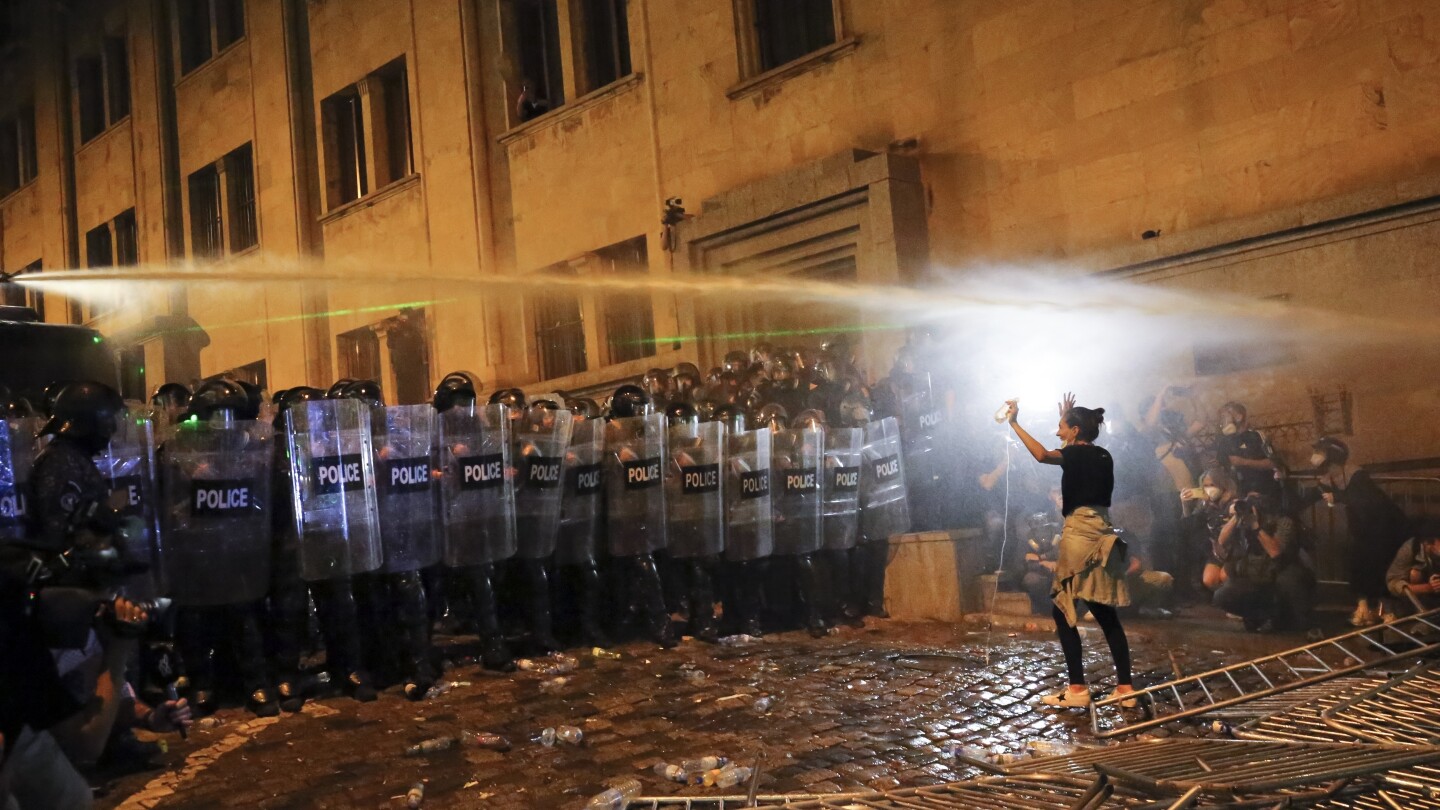- cross-posted to:
- world
- cross-posted to:
- world
Eka Gigauri is used to harsh words from officials about the anti-corruption work she does in Georgia. But seeing her face on posters, accusing her of being an agent of foreign influence, a traitor and a spy, rattled her.
Gigauri, who leads one of Georgia’s main anti-corruption campaign groups, says she and many others have been targeted in connection with a new law, pushed through parliament by the government.
The “foreign influence” law requires media, civil society groups and nonprofit organizations to register as “pursuing the interests of a foreign power” if they receive more than 20% of their funding from abroad. It also subjects them to intense state scrutiny and imposes steep fines for noncompliance.
The government argues the law is needed to curb harmful foreign actors trying to destabilize the South Caucasus nation of 3.7 million. Many journalists and activists say its true goal is to stigmatize them and restrict debate before an election scheduled for October. It could also threaten Georgia’s bid to join the European Union.



This is the best summary I could come up with:
But the Georgian government abstained from joining sanctions against Russia, barred dozens of Kremlin critics from entering the country, and accused the West of trying to drag Tbilisi into open conflict with Moscow.
Tamar Jakeli, the head of prominent LGBTQ+ rights group Tbilisi Pride, argues that both initiatives are part of a broader strategy by the ruling party to divide society.
Maka Bochorishvili, a Georgian Dream lawmaker who heads the parliamentary EU integration committee, told The Associated Press that the “foreign influence” law aims to ensure transparency.
Nino Bakradze, whose investigative publication iFact.ge has for years tracked secretive offshore companies, corruption and the impact on Georgians of major foreign investment projects, says this would essentially halt their operations.
Tbilisi’s modernization in recent decades, and its increasingly active citizenry, appeared to signal that democracy can succeed in post-Soviet states, threatening the Kremlin and other regional autocrats.
Gia Japaridze, a university lecturer and brother of a top opposition politician, told the AP that his assailants freely admitted he had been targeted because of his criticism of the “foreign influence” law.
The original article contains 1,314 words, the summary contains 178 words. Saved 86%. I’m a bot and I’m open source!